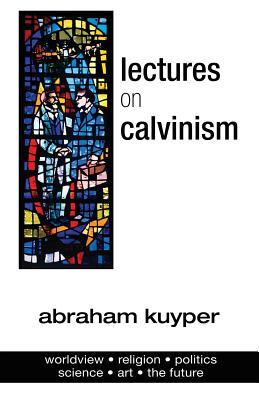Calvinism is not just five points, but is, as Dr. Kuyper makes clear, a whole, complete, coherent worldview. These Lectures represent the "next step" in Calvinism for those who have learned the five points, the doctrines of grace, and are ready to move on to the more developed meaning of those doctrines for the rest of the Christian worldview. Here you will find perhaps the most classic, single-volume exposition of just that: the doctrine and meaning of Calvinism expanded into a whole system of thought, in this case expressed in six areas of life: worldview, religion, politics, science, art, and the future.
Throughout these lectures, Dr. Kuper contrasts the glories of Calvinism, as biblical Christianity itself, over against various versions of humanism, paganism, pantheism, mysticism, and more, often including key differences in each area with Roman Catholicism, Lutheranism, Anabaptism, and liberal Christianity. The reader will be awakened to many developments in history they probably did not know stemmed directly for one of these religious worldviews, and how Calvinism not only corrects the errors, but lays the positive foundations for the values and institutions the free world holds most dear.

Calvinism is not just five points, but is, as Dr. Kuyper makes clear, a whole, complete, coherent worldview. These Lectures represent the "next step" in Calvinism for those who have learned the five points, the doctrines of grace, and are ready to move on to the more developed meaning of those doctrines for the rest of the Christian worldview. Here you will find perhaps the most classic, single-volume exposition of just that: the doctrine and meaning of Calvinism expanded into a whole system of thought, in this case expressed in six areas of life: worldview, religion, politics, science, art, and the future.
Throughout these lectures, Dr. Kuper contrasts the glories of Calvinism, as biblical Christianity itself, over against various versions of humanism, paganism, pantheism, mysticism, and more, often including key differences in each area with Roman Catholicism, Lutheranism, Anabaptism, and liberal Christianity. The reader will be awakened to many developments in history they probably did not know stemmed directly for one of these religious worldviews, and how Calvinism not only corrects the errors, but lays the positive foundations for the values and institutions the free world holds most dear.